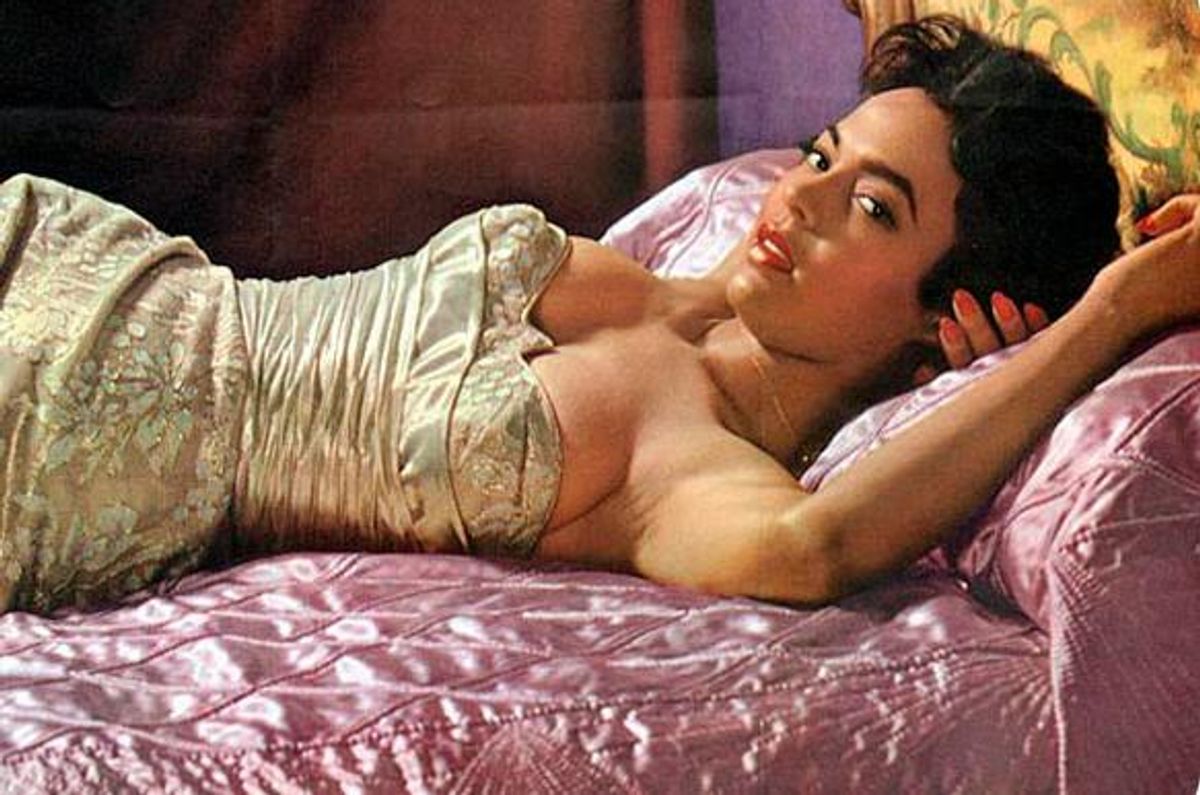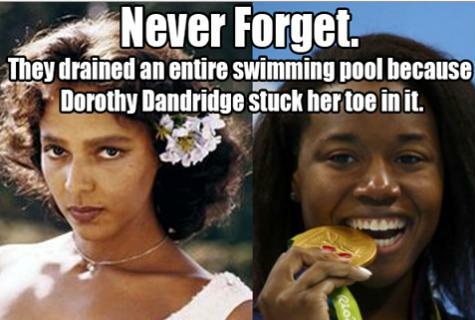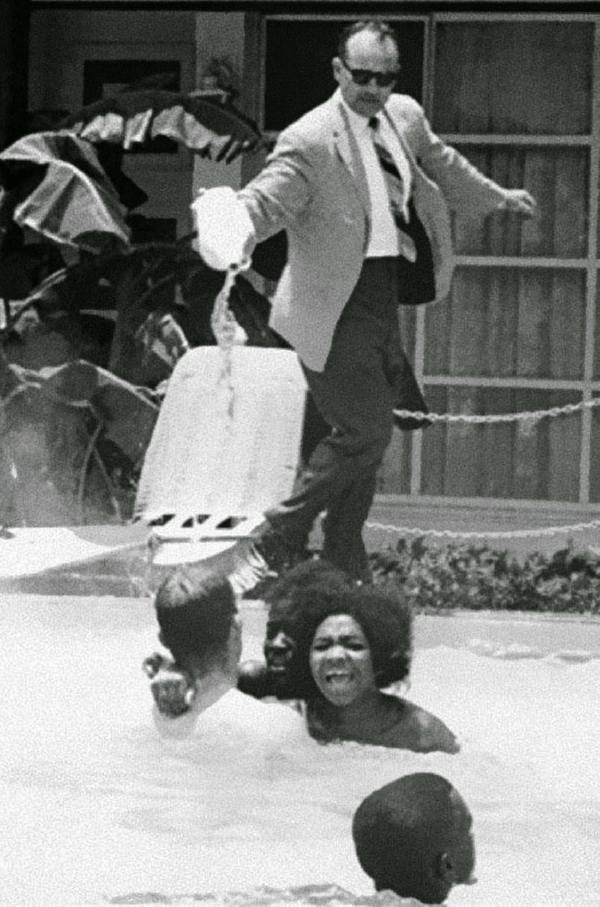The history of race relations in America includes many (unfortunately true) tales of black entertainers and athletes whose talents were avidly capitalized upon and enjoyed by white business people and audiences, while they themselves were treated as second-class citizens. Considered good enough to entertain millions of white Americans on ball fields and stages throughout the country, far too often these performers were nonetheless not considered good enough to share lodgings, restaurants, or recreational facilities with whites and had to make do with (typically far inferior) separate accommodations. And black customers who paid to see these performers were usually treated in like fashion, relegated to sitting in segregated (and less desirable) sections of the audience — if they were allowed to attend at all.
Perhaps nowhere was this disparity symbolized more than in the gambling mecca of Las Vegas, where black entertainers (primarily singers) regularly entertained casino and resort guests in hotel showrooms and lounges, but oftimes weren't allowed to stay in those very same hotels, or eat in their restaurants. Black entertainers weren't even welcomed as casino patrons, as sportswriter Roger Kahn documented when budding baseball superstar Willie Mays of the New York Giants was booted from a Vegas casino floor for the offense of "standing while black":
No one on the club was ready for an ugly incident that marred an exhibition-game trip to Las Vegas. After the game, in which the Giants beat the Indians again, the team was invited to visit one of the casinos for food and entertainment on the house. Mays took in a show with Roger Kahn, then wandered over to the dice tables, where he stood quietly watching the game. Suddenly a thuggish security man accosted Kahn, saying, "Get your friend away from the dice tables. We don't want him mixing with the white guests."
Kahn was indignant. The casino had asked Mays and the team to come in, after all. "Do you know who he is?" Kahn demanded.
"Yeah. I know who he is," said the security man. "He's a nigger. Get that nigger away from the white guests."
In the world of urban legendry, the paramount example of this form of discrimination is an oft-repeated anecdote that a Las Vegas hotel once went to the lengths of completely draining their swimming pool after singer/dancer Dorthy Dandridge (the first African-American actress to be nominated for an Academy Award for Best Actress) dared to dip her toe in it:
Even headliners like Nat King cole and Lena Horne, who filled the showrooms at the El Rancho, Flamingo, and other venues, had to spend the night in Westside rooming houses. Into the 1950s, no African American could go to a hotel room, restaurant, casino, showroom, or even a pool [in Las Vegas] — as black entertainer Dorothy Dandridge learned in 1953 when the Hotel Last Frontier drained the pool after she deliberately dipped her foot in it.
It's not hard to see why people might believe that tale, especially in the light of such famously documented instances as a Florida motel manager's pouring acid into a "whites only" swimming pool in order to frighten black anti-segregation protesters into leaving it:
This famous photograph by Horace Cort shows a group of white and black integrationists in the former Monson Motor Lodge swimming pool on June 18, 1964. The photo was connected to the St. Augustine Movement, named for the town in Florida where it took place. Lots of peaceful protests and demonstrations were responded to with violence, which led to more and more complicated protests.
On June 11, 1964, Martin Luther King, Jr was arrested for trespassing at the Monson Motor Lodge after being asked to leave its segregated restaurant. This (and other things) helped spur on a group of protesters, black and white, to jump into the pool as a strategically planned event to end segregation at motel pools. The pool at this motel was designated “white only.” Whites who paid for motel rooms invited blacks to join them in the motel pool as their guests. This swim-in was planned by Dr. Martin Luther King, Jr and two associates. The motel manager, Jimmy Brock, in an effort to break up the party, poured a bottle of muriatic acid into the pool, hoping the swimmers would become scared and leave.
But did the Vegas pool-draining incident actually happen? And to Dorothy Dandridge in particular?
The first thing we note is that, in true urban legend fashion, this story has also been told about multiple other black entertainers who worked clubs and showrooms on the Vegas strip:
"We came to the shows dressed (in costume) because there were no dressing rooms for blacks," said Claude Trenier, leader of the Treniers, a singing group that continues to perform in Las Vegas and Atlantic City after 50 years.
"Between acts we were told to go out and wait by the pool. But we couldn't go in the pool. Harry Belafonte once went swimming with his kids at the hotel where he worked, and the next day they shut down the pool, drained it and cleaned it."
When Louis Armstrong, Nat King Cole and Ella Fitzgerald headlined on the Strip, they slipped in through stage doors or kitchen doors and left the same way after taking their bows. Unable to rent rooms at whites-only hotels, they retreated to boarding houses on the Westside. Famous or not, they couldn’t try on clothes at white-owned stores. “If you tried something on, they made you buy it,” one Westsider recalls. Another local tells of the day Sammy Davis Jr. took a dip in a whites-only swimming pool at the New Frontier. “Afterward, the manager drained the pool."
We also note that (in similar urban legend fashion) the incidence of specifically citing Dandridge as the protagonist in this tale increased significantly after the scenario was dramatized in the 1999 HBO film Introducing Dorothy Dandridge, starring Halle Berry.
Finally, we observe that tellings of this legend generally stem from people who say they heard about the event second-hand (rather than witnessing it themselves), and those tellings don't necessarily jibe with reality — as in the case of Harry Belafonte:
Belafonte chose to integrate the swimming pool at the Riviera. He didn’t ask permission, he just jumped. According to his biographer Arnold Shaw, Belafonte splashed around, watching for security guards, “expecting all hell to break loose.” But nobody shouted or emptied the pool. White guests hurried to their rooms — but only to fetch their cameras. “Before long, mothers and fathers were asking Harry to pose with their youngsters for pictures.”
At this point in our narrative, the best we can say is that the pool-draining tale may or may not be true, and it may or may not have involved someone other than Dorothy Dandridge. So let's turn our attention to why it supposedly happened.
What's reflected in many tellings of this tale (including the HBO film about Dandridge referenced above) is the implication that even a small portion of a black person's body touching the water of a whites-only swimming pool was considered to have so thoroughly contaminated that water as to require its complete removal and replacement, lest white swimmers flee in disgust:
The first thought that crossed my head was the powerful scene in Introducing Dorothy Dandridge, the HBO film about the actress' life. In the scene Dandridge (played by Halle Berry), walks past a hotel swimming pool after being told she couldn't get in. Instead of being defeated, she defiantly dips her toe in the water and kicks it around. In the very next scene, however, the pool is being drained and cleaned by Black workers as Dandridge watches from her hotel room. Apparently, even dipping a toe in the water was too much for the hotel's white patrons, who complained.
However, a tactic commonly employed by segregationists who wanted to deny the use of facilities to unwanted, assertive blacks (especially in parts of the U.S. where segregated facilities were not enforced by law) was to suddenly declare some nebulous malfunction had rendered them "out of order" (a situation which would usually be quickly remedied just as soon as the unwanted guests gave up and departed). This tactic could, at times, extend to the draining of pools to render them temporarily (or in some cases, permanently) unusable:
Of course, desegregation was a step in the right direction, until white people left the cities for the suburbs, and urban pools where black kids could learn to swim were "coincidentally" defunded, drained, and closed. Of course, white folks were excited to let us swim in their private pools and country clubs. I'm kidding. Didn't happen.
This thought brings another possible scenario to mind. What if a high-profile black entertainer used, attempted to use, or evinced an interest in using a Vegas hotel swimming pool that management preferred remain limited to whites (so as not to drive away white customers who were dead set against sharing such a facility with blacks)? It might be a bit awkward from a publicity standpoint for hotel management to publicly hustle such a celebrity away from the pool (or even to privately inform that person that he or she was not welcome there), but that problem could be temporarily headed off by fabricating a reason for suddenly draining the pool, thereby making it unavailable to everyone (and covering the real reason for its unavailability). When said celebrity finished his or her engagement and left town (or moved on to another hotel), the pool "maintenance" problem could be quickly remedied.
Indeed, this scenario is the one most frequently cited in discussions of this legend — that a hotel pool was deliberately drained not because Dandridge had "contaminated" its waters, but as a preventive measure to ensure she didn't try to use it:
As for swimming-while-black-and-female ... yes, there’s a history to that, too. The Dorothy Dandridge tale has been passed down for generations, and those who had missed it got the lesson: that while she performed at Las Vegas hotels in the 1950s, at least one hotel drained its pool to assure that she would never had the opportunity to use it.
This helped to showcase her talents as a singer and brought her headline acts in the nation's finest hotel nightclubs in New York, Miami, Chicago and Las Vegas. She may have been allowed to sing in these fine hotels but, because of racism, she couldn't stay there. It was reported that one hotel drained its swimming pool to keep her from enjoying that little amenity.
Heartbroken over her child and the breakup of her marriage, Dandridge threw herself into her work. In the early 1950s she built a top-rated nightclub act, but always with an eye on the movies. Phil Moore, her musical arranger, became her Svengali.
She detested the racist policies on the nightclub circuit, which prohibited her from staying in the very hotels where she was headlining. One Las Vegas club drained its swimming pool for fear Dandridge would want to take a dip.
Of course, a hotel's putting their swimming pool out of action (especially in the desert heat of Las Vegas, where such amenities are expected and prized by guests) and inconveniencing all their customers for an indefinite period of time in order to deal with a single-person problem sounds like self-defeating overkill. Which is why, perhaps, at least some Dandridge biographies suggest that a Vegas hotel deterred her from using their pool merely by threatening to drain it:
Now that Dandridge had earned the status of a "golden goddess headliner," she was more intolerant than every of racial prejudice. Nowhere was this bigotry more upsetting to her than in Las Vegas. In 1953, [manager Earl] Mills booked Dandridge for two weeks at the city's prestigious Last Frontier Hotel. The hotel management agreed to let her stay in one of its luxury suites but only after Mills insisted. However, Dandridge was told not to go near the swimming pool, If she did, the pool would be drained.
If Dandridge even hinted that she wanted to swim, the hotel would close the pool and put up a sign saying it was closed for maintenance.
It's not a stretch to assert that Dorothy Dandridge (and/or other black entertainers) were at some time explicitly barred from using swimming pools at Las Vegas strip hotels in the early 1950s, or that they may have been tacitly discouraged from doing so (by means up to and including threats of pool drainage). But given the dearth of first-hand accounts and contemporaneous reporting, we can't definitively say that any particular hotel ever proactively drained their pool to keep her from using it, much less emptied all the water merely because she dipped a toe in it.



